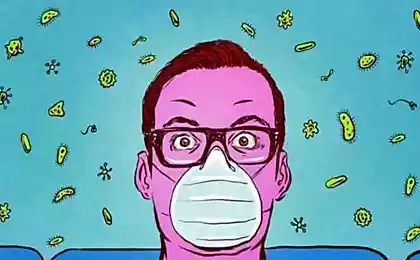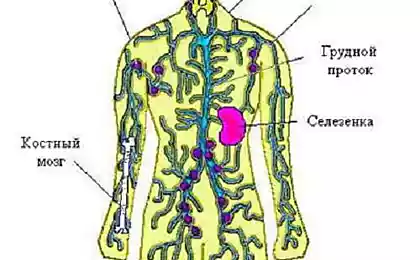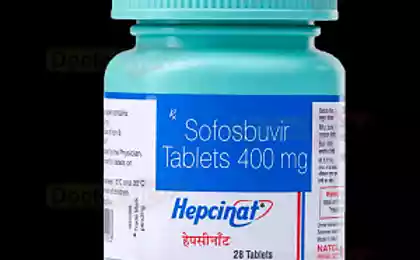158
Immunity in danger: gepatitis C
According to statistics, about 150 million people in the world are carriers of hepatitis C. The disease affects not only the liver, but over time - and other organs of various systems. Immunity is subjected to a great load, since from the moment the virus enters the body, it is activated and fights with the pathogen throughout its stay.
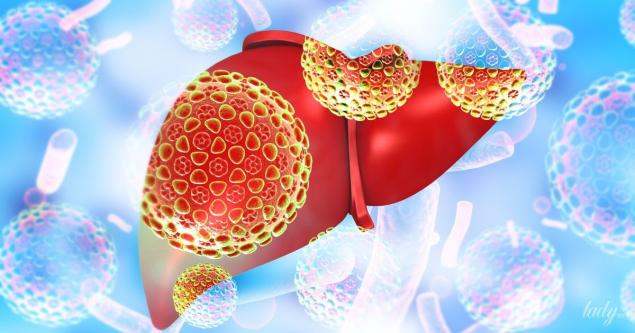
Features of the disease
Viral hepatitis C is transmitted through the blood. Science knows up to ten genotypes of the HCV pathogen. Pathology can be asymptomatic in the body for decades, which depends on the immune response of the body, and may go into the stage of exacerbation. The disease makes itself felt by such symptoms:
Immune response to HCV
The hepatitis C virus tends to mutate quickly. The most mobile genes of the pathogen, encoding its surface antigens, are attacked by the body's immune cells. The high rate of variability of the virus contributes to the acceleration of the formation of new antigenic immune cells, but in this race the pathogen wins. Therefore, human immunity is not able to independently overcome the virus, so he lives and acts in it for years.
Factors of the immune mechanism in relation to HCV are:
Treatment of disease
During the treatment of hepatitis C, you need to adhere to a dietary regimen: exclude from food intake of fatty, salty and other harmful products, take enough water daily. The use of alcohol, narcotic substances, smoking reduce the effect of therapy, so they should also be excluded.
Drug treatment (type of drugs, their dose and duration of use) is prescribed by the attending physician taking into account the individual course of the disease, the genotype of the pathogen, the viral load. For the treatment of hepatitis C, drugs for oral administration are used: immunomodulators, anti-inflammatory, hepatoprotectors, direct-acting antiviral drugs (DVPD).
Among the most popular drugs are tablets based on substances Sofosbuvir, Daclatasvir, Ledipasvir and others. Indian generics show high efficiency of action despite the fact that they have a much lower price than the original counterparts.
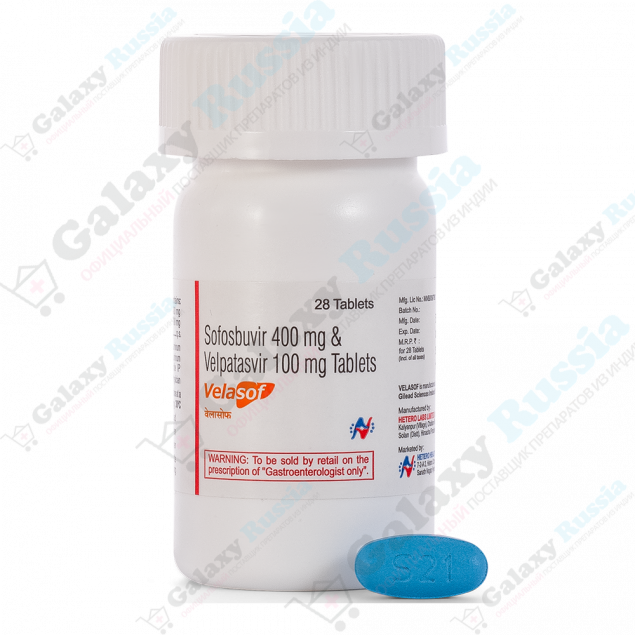
You can buy Daklatasvir and other generics on our website at a price from the manufacturer and with a guarantee of protection against counterfeiting. Order Sofosbuvir in St. Petersburg and other cities of Russia, you can with other generics by fast delivery. Here you can get competent expert advice.

Features of the disease
Viral hepatitis C is transmitted through the blood. Science knows up to ten genotypes of the HCV pathogen. Pathology can be asymptomatic in the body for decades, which depends on the immune response of the body, and may go into the stage of exacerbation. The disease makes itself felt by such symptoms:
- pain in the liver;
- digestive disorder.
- dark color of urine, light - feces;
- increased body temperature;
- malaise.
Immune response to HCV
The hepatitis C virus tends to mutate quickly. The most mobile genes of the pathogen, encoding its surface antigens, are attacked by the body's immune cells. The high rate of variability of the virus contributes to the acceleration of the formation of new antigenic immune cells, but in this race the pathogen wins. Therefore, human immunity is not able to independently overcome the virus, so he lives and acts in it for years.
Factors of the immune mechanism in relation to HCV are:
- Cellular - neutrophils, tissue macrophages, as well as NK cells (natural killer cells);
- humoral - interferons, nonspecific immunoglobulins.
Treatment of disease
During the treatment of hepatitis C, you need to adhere to a dietary regimen: exclude from food intake of fatty, salty and other harmful products, take enough water daily. The use of alcohol, narcotic substances, smoking reduce the effect of therapy, so they should also be excluded.
Drug treatment (type of drugs, their dose and duration of use) is prescribed by the attending physician taking into account the individual course of the disease, the genotype of the pathogen, the viral load. For the treatment of hepatitis C, drugs for oral administration are used: immunomodulators, anti-inflammatory, hepatoprotectors, direct-acting antiviral drugs (DVPD).
Among the most popular drugs are tablets based on substances Sofosbuvir, Daclatasvir, Ledipasvir and others. Indian generics show high efficiency of action despite the fact that they have a much lower price than the original counterparts.

You can buy Daklatasvir and other generics on our website at a price from the manufacturer and with a guarantee of protection against counterfeiting. Order Sofosbuvir in St. Petersburg and other cities of Russia, you can with other generics by fast delivery. Here you can get competent expert advice.
Top 3 most fashionable trends of women’s summer sneakers in 2021
Line, painting, coefficients in live






